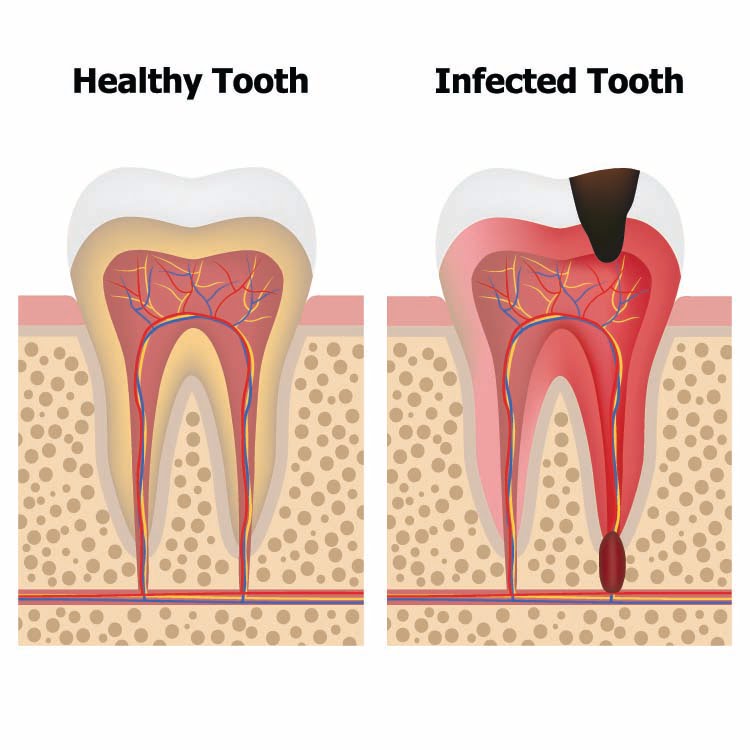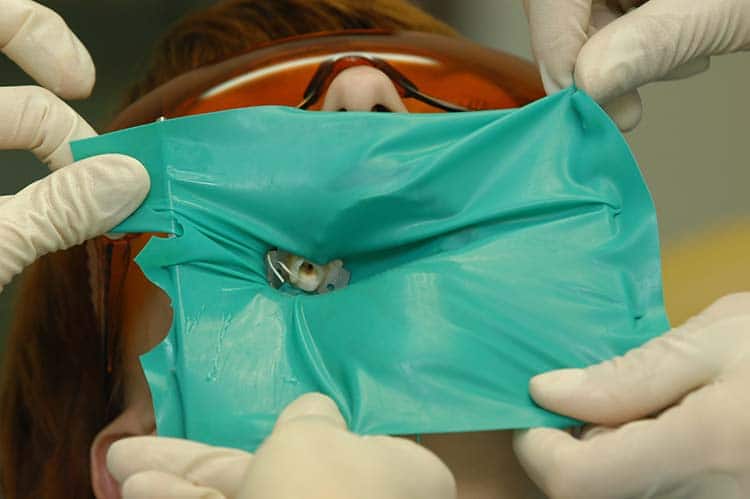Root canal; two words which can spread fear into even the most stoic person. The problem is, a root canal is a victim of its own reputation. The truth is, modern root canal treatment is now no more painful or uncomfortable than having a regular filling.
The anatomy of a tooth
Before we get into the actual procedure, we first need to have a look at teeth and how they are structured.
Enamel
The hard, outer part of a tooth is called the enamel. Made up of tough minerals, tooth enamel is the hardest substance in your body (which is why people are identified by their dental records). Enamel is on the front line when it comes to protecting against tooth decay, so it’s important to look after it by brushing regularly.
Dentine
Underneath the enamel, and making up most of your tooth, lies the dentine. Being the larger, middle part of the tooth, any decay which gets in here can spread quickly, so needs to be treated as soon as possible, otherwise things can go very bad, very quickly.
Cementum
Cementum is a hard, bone-like material that coats the root’s surface, allowing it to attach to the gum and jaw. Cementum grows continuously throughout our lives and therefore is a great indicator of forensic age estimation.
Dental pulp
The soft tissue at the centre of a tooth is called the pulp. This is the sensitive part of the tooth where the nerves and blood vessels are contained. These nerves allow you to detect hot and cold when eating food, and hurt when decay starts affecting teeth.
Why some people need a root canal
When plaque builds up on teeth, it starts to eat away at the enamel, literally leaving a hole in your tooth. If left untreated, bacteria can pour through this hole into the dentine.
Once inside the tooth, the bacteria will spread, and if the infection gets far enough inside, it will reach the pulp.
This is the point when you need root canal treatment.
If you leave it too long, things can get very serious. It is an infection after all, and like all infections, if left untreated, it will spread.
In really bad cases the infection might start to spread into your jaw bone and gum, lead to an abscess, and then result in sepsis.
Root canal treatment
If it’s decided you do in fact need a root canal, then the first thing we do is take an x-ray to get a better idea of what we’re dealing with.
After a local anaesthetic to numb the tooth and the surrounding area, a dental dam is placed over the tooth to keep it clean and free of saliva.
The dentist will then open the tooth at the top and, using very small instruments, clean out the infected pulp. Once the root is cleaned out, it is traditionally filled with a biocompatible material called gutta-percha.
Here at SDAI, we use the latest technologies for our procedures, including bacteria-killing lasers. These lasers penetrate deeper than older root canal methods, removing bacteria, but at the same time leaving the surrounding tissue undamaged.
Where traditional tools would clean out the tooth’s root, using laser can further sterilise it, which increases your chances of a successful procedure.
With our cutting-edge, laser root canal treatment you’ll have less inflammation, swelling and discomfort, which can often be felt as the anaesthesia wears off, along with a reduced possibility of side effects from the procedure.
Why come to us for root canal treatment
We are experts when it comes to the latest root canal procedures and cutting-edge technology.
Add that to our holistic approach to dentistry – we strive to provide you with dental care that is innovative, comprehensive and comfortable in a safe and caring environment.
We do everything we can to make your dental experience comfortable and relaxed, and to have a full understanding of what’s going on at every stage of treatment. We also have a range of sedation options available which we would be happy to go through with you in person.
Contact our team today if you have any questions about the causes, symptoms, or procedures for a root canal treatment.
Our friendly and experienced staff will be happy to answer any questions you may have.


